LISD Tech Center students, Tecumseh Rotary Club partner on water pasteurization project
ADRIAN — With an assembly line process in place last week, students enrolled in the Lenawee Intermediate School District (LISD) Tech Center FFA programs worked on crafting simple and low-cost thermometers that can serve as an essential tool for determining when water has reached its pasteurization temperature.
The project, which began Thursday, March 21 and continued March 22, saw students working with small tubes, stainless-steel wires, and red and blue beads of wax all of which when brought together, created reusable Water Pasteurization Indicators, known by the acronym WAPI.
Students from the LISD Tech Center’s Agri-Tech, horticulture and natural resources FFA programs worked on making the WAPIs in partnership with the Rotary Club of Tecumseh at the LISD’s Center for a Sustainable Future, 4260 Tipton Highway, Adrian.
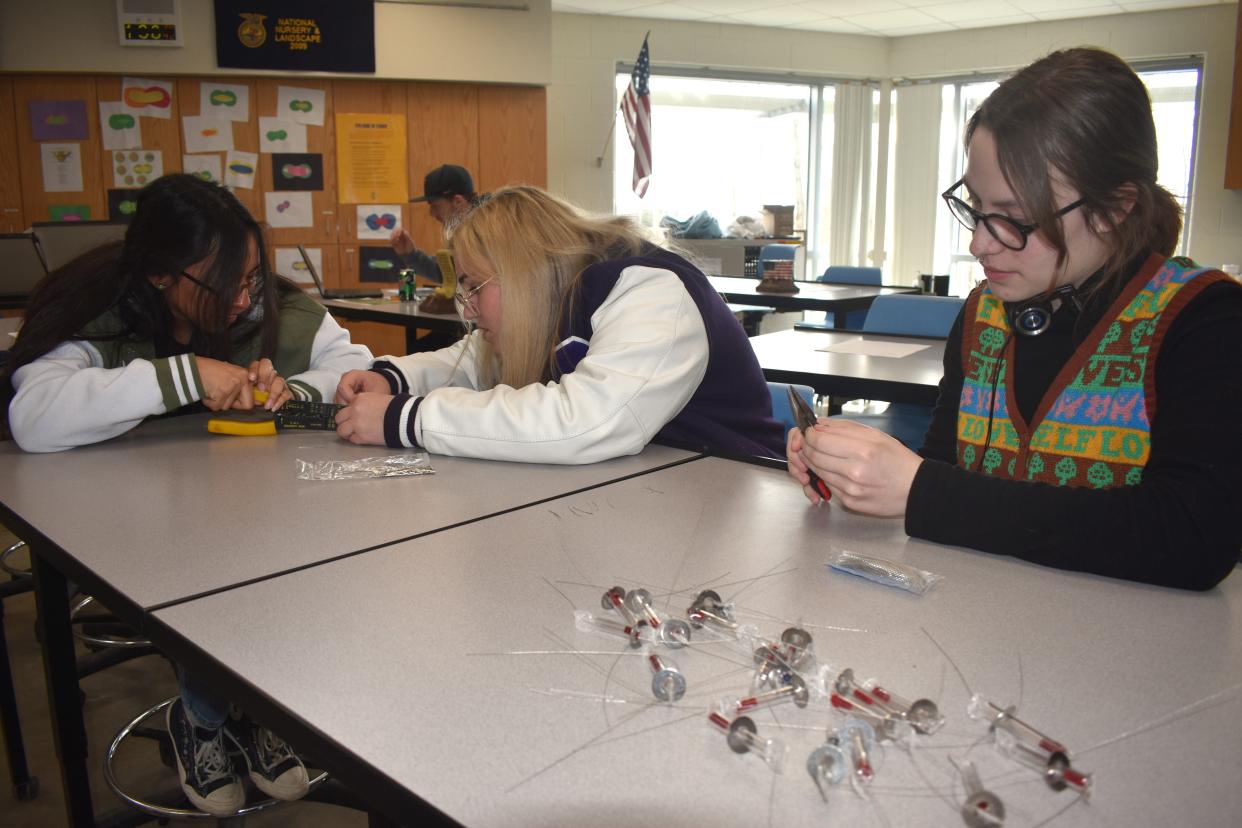
Rotary clubs have seven focus areas with one of them being education with students and another being providing/advocating for safe, clean water, according to Holly Willey, president of the Rotary Club of Tecumseh.
As a substitute teacher, Willey said she recently substituted in Carley Kratz’s natural resources program class at the LISD. She approached Kratz about the WAPI project thinking it would serve as a quality collaboration between the service organization and the LISD students.
While working with students in California, Willey said she had previously worked with WAPIs, which contain a special wax inside an enclosed capsule that goes directly into water that will be boiled. Once the water reaches 149 degrees, the wax will melt, which is an indicator, Willey said, that the water is safe for use. Disease-causing organisms are killed in the process of pasteurization.
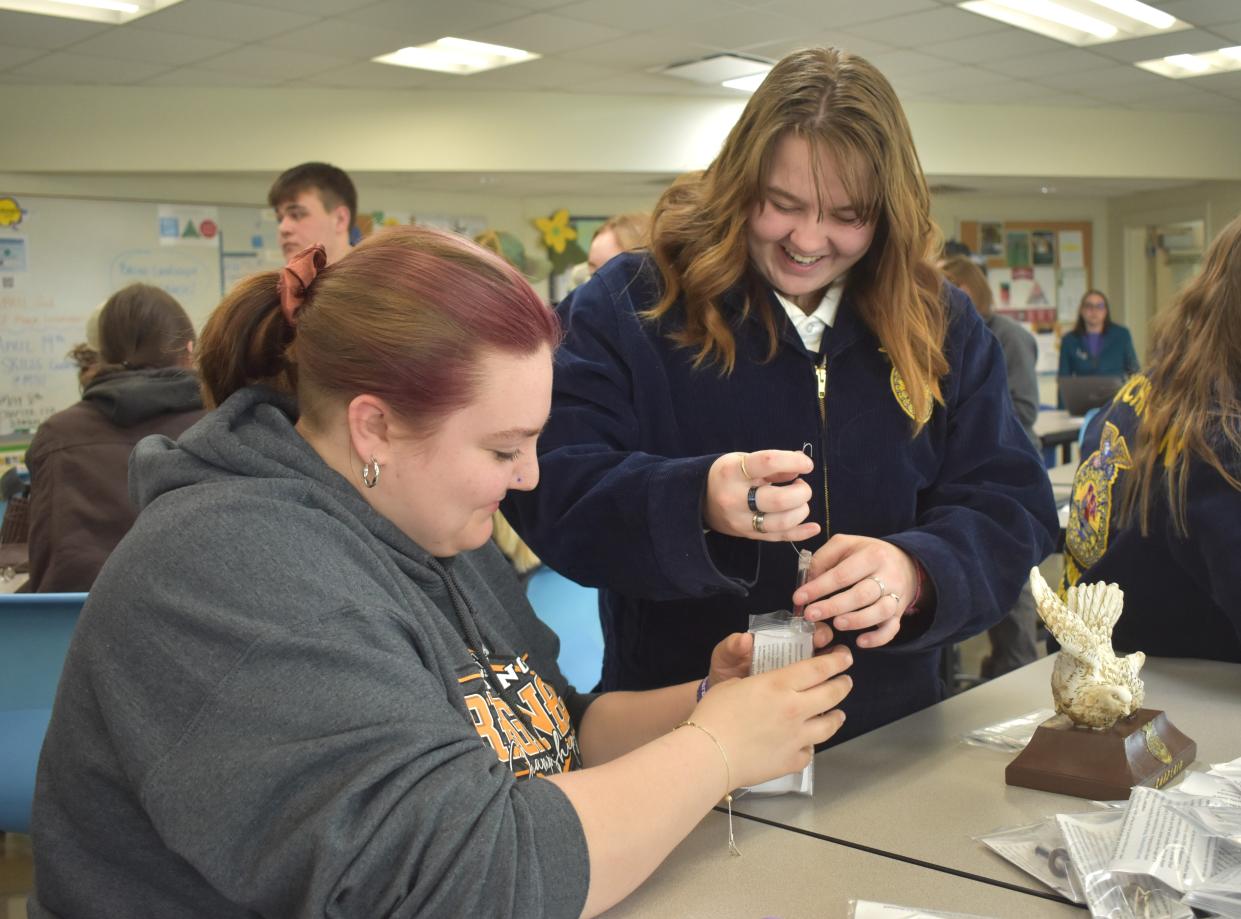
WAPI’s are reusable and have about 200 uses per thermometer, she said. After the wax melts, it will harden at the other end of the thermometer.
When water has reached 149 degrees it is free from harmful diseases and bacteria including E. Coli, rotaviruses, giardia, hepatitis A, cholera and more.
In developing countries, about 80% of illnesses are linked to poor water and unsanitary conditions, according to a WAPI description and fact sheet that comes with each WAPI thermometer.
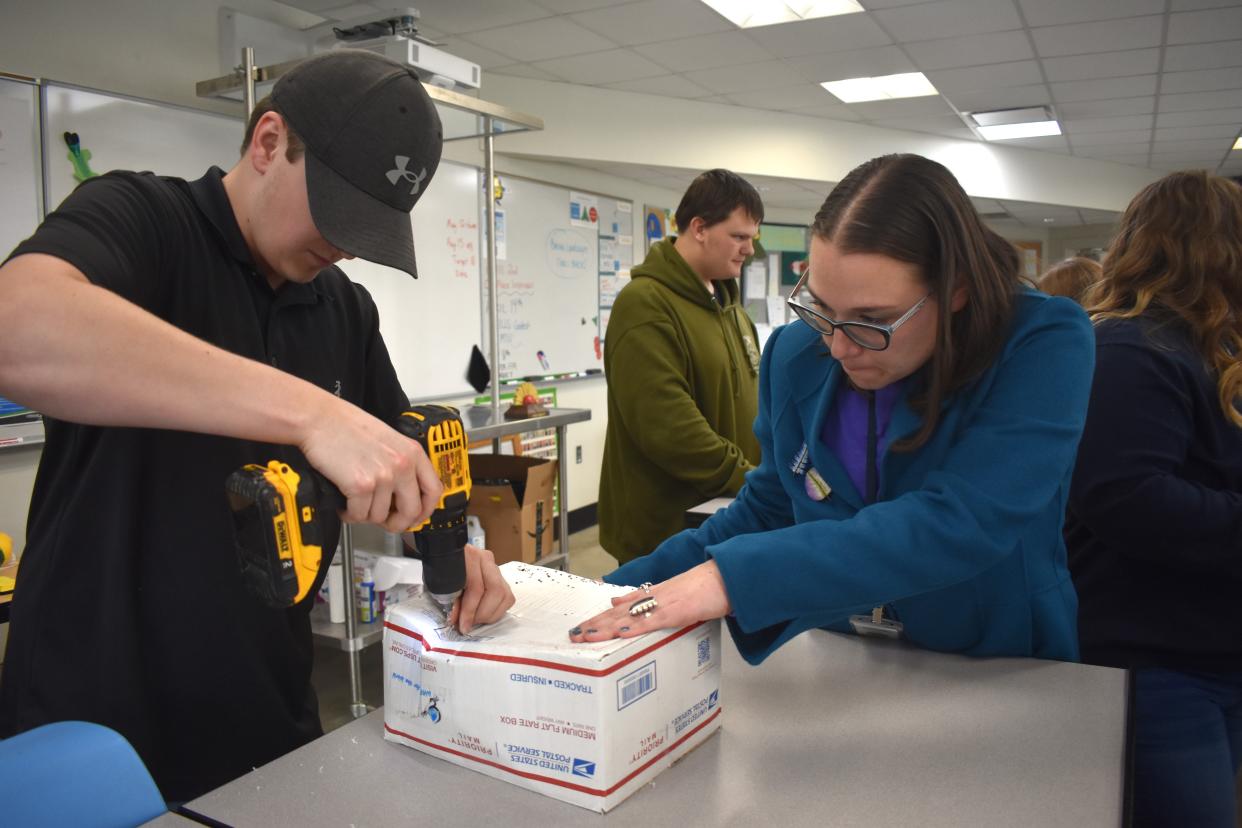
“The stainless steel WAPI can be used for pasteurization over open flame fuel sources including wood, charcoal, gas and dung,” the provided fact sheet said. “It also works well in conjunction with a solar cooker. With good sun, simple solar cookers can pasteurize water for a family at a rate of about one liter per hour.”
After going through the pasteurization process, the water should be placed in a clean and covered container for further use.
WAPIs containing a red bead of wax are for boiling water. Blue-beaded WAPIs are for the pasteurization of milk. The LISD FFA students working on the project in conjunction with Tecumseh Rotary last week, are the first students to work with the blue bead WAPI, Willey said.
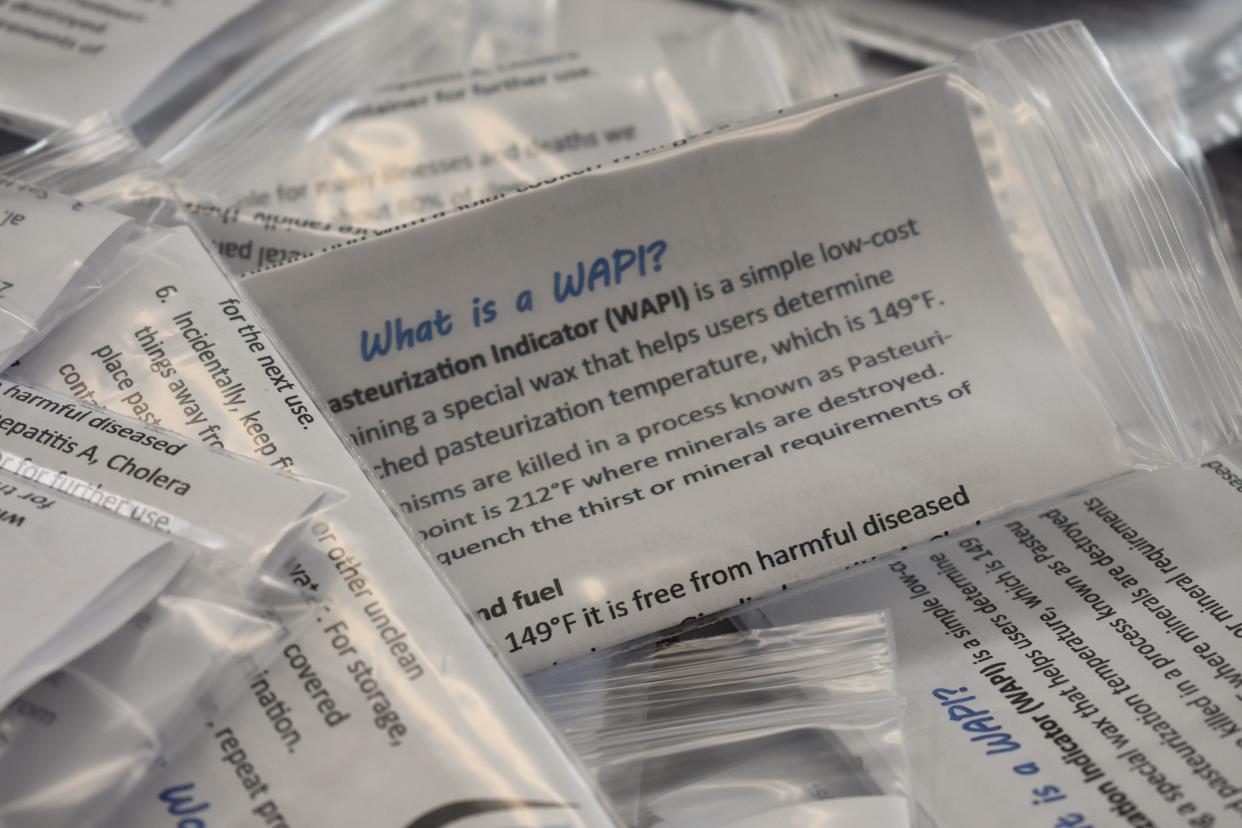
“Nobody else knows about these, has seen them or used them yet,” she said of the blue bead WAPI. “These guys (the FFA students) are the first ones to work with them.”
The blue wax melts at 160 degrees as opposed to 149 degrees, indicating the pasteurization of milk.
The WAPIs will be heading wherever the students decide to send them, Willey said. Rotary clubs have contacts with third-world countries, and Willey said she has worked with remote villages in South America where water filtration systems have been installed.
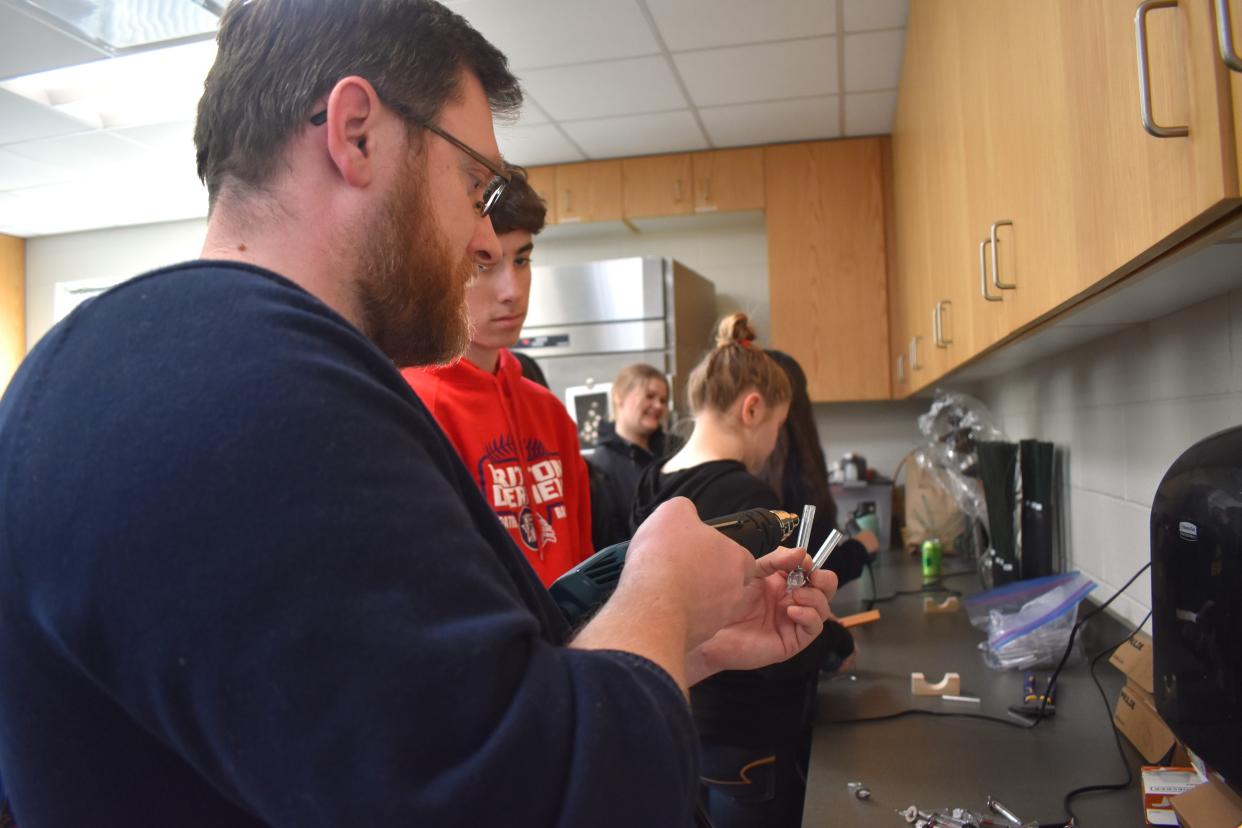
Homeless encampments also can be beneficiaries of the WAPIs, she said, providing for safer water at such locations. WAPIs have been sent to natural disaster ravaged areas, including communities destroyed by hurricanes. WAPIs have been included as part of disaster relief kits.
“It’s whatever the kids want to do,” she said. “They can also keep them and give them out to first responders who can give them to somebody who is in a situation where they don’t necessarily have running water.”
Subscribe Now: For all the latest local developments, breaking news, and high school and college sports content.
“I think it’s a great opportunity, seeing how the stuff that we do here can help somebody else in a different community and make a big change in their life, with something as essential as clean water that might not be accessible to them. Now they have an opportunity to get that accessibility and use less resources,” Jake Blatchford, 2023-24 LISD FFA president said. Blatchford is a senior at Tecumseh High School and is in his second year in the Tech Center’s Agri-Tech program.
Here is the process of how to utilize a WAPI:
Place a WAPI into a pot with the end of the tube containing the washer down and the wax up. Bend the stainless-steel wire at the top of the WAPI so that it lifts over the lip of the pan.
Pour water into the pot that can be used for heat. Thin metal pans with lids are ideal as they heat more rapidly, therefore, saving fuel.
Set the pot or pan over the fire and then cover with the lid.
When the wax completely liquifies and falls to the bottom of the tube, the water has been heated sufficiently. Pasteurization has occurred as long as the wax is at the bottom of the tube.
Allow the wax in the WAPI to solidify. Allow a minimum of 15 minutes before reuse. This allows the wax to cool down for accurate readings. Turn the WAPI over and pull the wire through the opposite end. The WAPI is now ready for the next use.
If you are not sure the water is clean, repeat the process.
Those who are interested in more ways to provide reliable water projects to communities, specifically in sub-Saharan Africa who suffer from a lack of access to clean water and proper sanitation, can visit TheWaterProject.org.
— Contact reporter Brad Heineman at bheineman@lenconnect.com or follow him on X, formerly Twitter: twitter.com/LenaweeHeineman.
This article originally appeared on The Daily Telegram: LISD students work with Tecumseh Rotary on water pasteurization project
